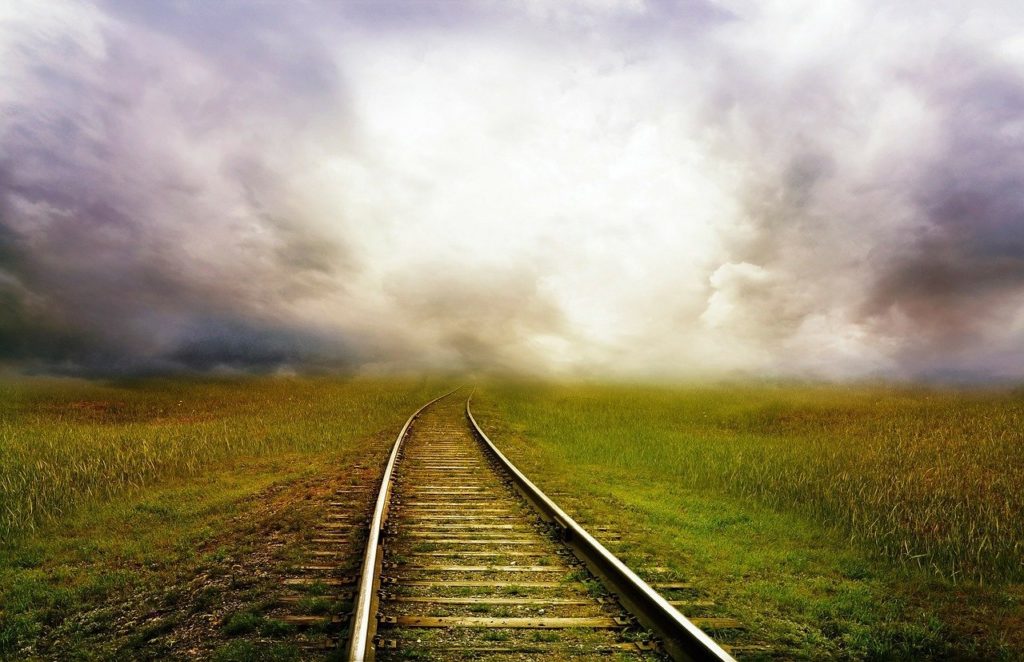- Calls to this hotline are currently being directed to Within Health, Fay or Eating Disorder Solutions
- Representatives are standing by 24/7 to help answer your questions
- All calls are confidential and HIPAA compliant
- There is no obligation or cost to call
- Eating Disorder Hope does not receive any commissions or fees dependent upon which provider you select
- Additional treatment providers are located on our directory or samhsa.gov
Three Largest Obstacles I Face in ED Recovery

After what could easily be over a ten year battle with food, for the first time in my life, I finally feel at peace in eating disorder recovery. That doesn’t mean I have stopped, even for one second, thinking about food. Even as I type, thinking isn’t the right word.
I am not just thinking about food in the way one fantasies about the delicious leftovers they have in the fridge after a night out or the dinner they will be having later at their favorite restaurant. In this circumstance, by thinking, I specifically mean overanalyzing.
Now, I am in recovery from my past eating disorder. I am proud to be in recovery, and while I am physically recovered, the mental part of recovery is one that I battle every day. This is why I will never say I am “recovered” from my disordered eating past. I am recovering – in present tense.
Each day, I have to consciously push out negative thoughts surrounding food and eating out of my head. I have to listen to my body and not my brain sometimes.
For example, when my stomach growls, that is my body telling me it wants food. When I was battling an eating disorder, I would silence that growl. Whether it be by ignoring it and not eating even when my body told me to or eating, then take laxatives.
That is the worst part of an eating disorder, while you know you shouldn’t be starving yourself or taking laxatives or throwing up, but you feel as though you can’t help but do it anyway.
Over the last year or so, I have been doing an exercise to aid my recovery and stop my brain from overanalyzing food so much. When I have a harmful, unsafe, or unhealthy thought about food and my eating habits, I like to slow down or pause my current train of thought.
If I have to think of the three largest obstacles I regularly face in my recovery, the answers to me are obvious. These obstacles are unique to me, my body, my mind, and my lifestyle as recovery is different for every single person.
 The first and largest is, without a doubt choosing to overeat when I know I am not hungry after consuming alcohol. Now in the past, when my eating disorder was at its peak, I would restrict myself and ignore any food craving I deemed “bad” or “unhealthy.”
The first and largest is, without a doubt choosing to overeat when I know I am not hungry after consuming alcohol. Now in the past, when my eating disorder was at its peak, I would restrict myself and ignore any food craving I deemed “bad” or “unhealthy.”
Then on Friday and Saturday night, I would go out with my friends, and as soon as my guard was down, after a few drinks, I would find myself overeating. I don’t mean a slice of pizza. I mean a pizza pie! The next day I would feel horrible about myself and not eat all day or endanger my health by taking a box of laxatives, and sadly, the cycle was endless.
Today, I listen to my gut, and when I am craving ice cream or cookies or chips – I have them in moderation. However, moderation is not always easy.
I struggled with binge eating disorder as well for quite some time. However, due to recent FDA discoveries, this can now be aided with the assistance of medication, which I found very helpful in my personal experience.
Sometimes, still after a night out with friends, I overdo it on the late-night pizza or cheese fries. I know the strides I have made in my recovery by the fact the guilt I feel the next day has gone down in massive amounts. While, of course, I still feel a pain of “I shouldn’t have eaten all of that,” the guilt I feel is no longer overbearing and clouding my thoughts and self-value.
The second largest obstacle in my recovery journey is overanalyzing and overthinking situations where I know large amounts of delicious food will be present, Christmas and Thanksgiving dinner are the first that come to mind. The week leading up to Thanksgiving, my absolute favorite holiday, I tend to get a little anxious at the possibility of overeating.
In our family, Thanksgiving lasts about three days, with a large number of family and friends coming in and out of our house over the duration of that time. For the last few years, I make sure I have my regular appointments scheduled with my psychiatrist both the week before and the week after.
Talking out loud about these anxieties is very helpful. I also find it important to remind myself that I love being with friends and family, and I absolutely adore these big gatherings. If I go a little crazy, so be it. I make sure to reign it back in and eat healthy again once the holiday is over. It is all part of my eating disorder recovery.
Lastly, I eat as slow as a turtle, eating a piece of grass. Which is something I have developed over time to help me when it comes to overeating/not eating enough. I personally think there is nothing wrong with this.
 My friends make jokes about me as I am always the last one with food on my plate at a restaurant. I know they love me, and they are used to my slow eating habits by now.
My friends make jokes about me as I am always the last one with food on my plate at a restaurant. I know they love me, and they are used to my slow eating habits by now.
However, when I am out to dinner with a new group of people or on a date, I have a lot of anxiety about how slow I eat. It does not sound like a big deal, but after countless eye rolls, anyone would feel a bit self-conscious.
On top of that, everyone always likes to point out, “Is something wrong?” “Is the food not good?” “Aren’t you hungry?” I know these are innocent questions, but to someone recovering from an eating disorder, they aren’t the most comfortable to answer.
I have started snacking before these encounters. I used to refuse to snack during my ED, so this took me a little while to build up the strength to do. This helps me not play around and push my food around as much and simply eat until I feel full.
Of course, I could still name another 50 other things I still struggle within recovery, as anyone going through this could as well. Each person is different.
My main goal is getting healthy and feeling better, mentally, and physically. I look back and realize how far I have come from being diagnosed as malnourished. I am happy, I am healthy, and I am gradually overcoming each and every obstacle that comes my way. Eating disorder recovery continues.
About the Author:
 Hannah Roesler is a graduate from Fordham University and currently working and living in New York City. Hannah is originally from Spring Lake, NJ and often goes home on the weekends in the summer to enjoy the beach.
Hannah Roesler is a graduate from Fordham University and currently working and living in New York City. Hannah is originally from Spring Lake, NJ and often goes home on the weekends in the summer to enjoy the beach.
She struggled with laxative abuse throughout the majority of her college and several post-college years. She is currently in recovery and working as the Eating Disorder Hope Special Projects Coordinator. Her hobbies include SoulCycle and running both competitively and for leisure.
The opinions and views of our guest contributors are shared to provide a broad perspective on eating disorders. These are not necessarily the views of Eating Disorder Hope, but an effort to offer a discussion of various issues by different concerned individuals.
We at Eating Disorder Hope understand that eating disorders result from a combination of environmental and genetic factors. If you or a loved one are suffering from an eating disorder, please know that there is hope for you, and seek immediate professional help.
Published April 28, 2020, on EatingDisorderHope.com
Reviewed & Approved on April 28, 2020, by Jacquelyn Ekern MS, LPC

The EatingDisorderHope.com editorial team comprises experienced writers, editors, and medical reviewers specializing in eating disorders, treatment, and mental and behavioral health.

